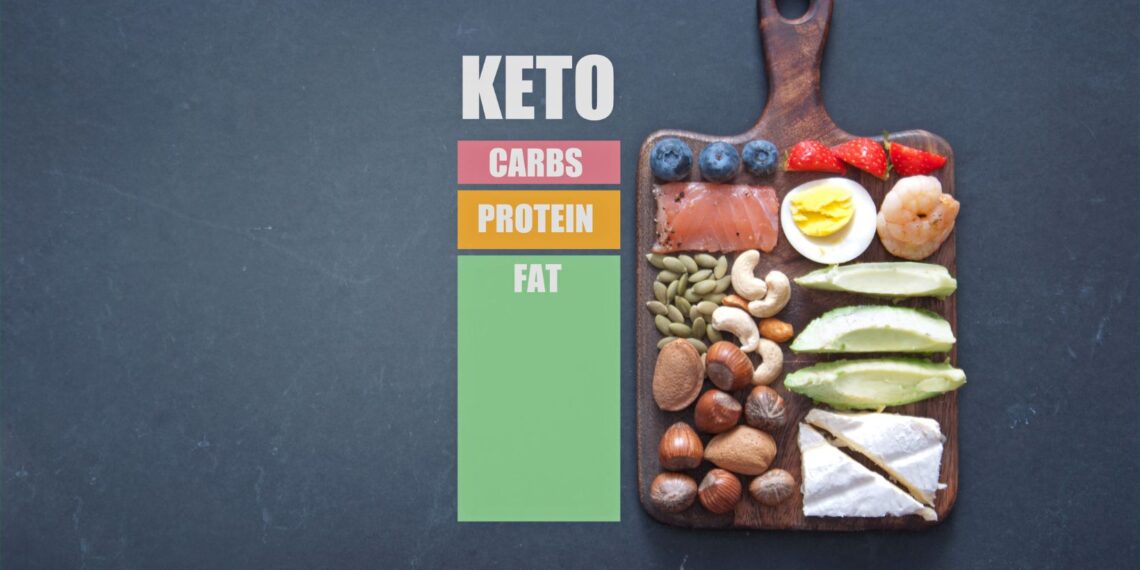We all hear about the keto diet all the time, but there still are many misconceptions about the benefits of this diet and how it’s supposed to be executed. Join us for this quick read to learn the essential information that you need to know about the keto diet before considering it.
The goal of the ketogenic diet, also referred to as the “keto diet,” is to put the body into a state of ketosis by following a high-fat, low-carb diet. When the body enters this state, it stops using glucose from carbs as its primary energy source and instead uses ketones, which are created when fats are broken down. Shifting the body’s energy metabolism from burning carbs to burning fats is the basic idea behind the ketogenic diet.
Typically, a ketogenic diet consists of a low amount of carbs (typically 5–10%), a moderate amount of protein (around 20–25%), and a high percentage of dietary fats (about 70–80% of total daily calories). Within a few days of drastically reducing carbohydrate intake, the body enters a condition of ketosis, which causes the liver to produce more ketones.
Commonly Emphasized Foods in a Keto Diet:
● Healthy Fats:
1. Avocado:
Avocados are high in monounsaturated fats and offer a creamy texture along with many other important elements, including fiber and potassium.
2. Olive Oil:
Olive oil has a relatively high monounsaturated fat content in addition to low concentrations of vitamins K and E. Moreover, extra virgin olive oil is considered a rich source of antioxidants, some of which offer significant health benefits.

3. Coconut Oil:
With a high content of medium-chain triglycerides (MCTs), coconut oil can be swiftly transformed into ketones, which can be used as a quick source of energy.
● Proteins:
1. Meat:
Reduce your intake of carbohydrates and maximize your protein intake by consuming lean meats like chicken, turkey, beef, and pork.
2. Fish:
In addition to providing protein and omega-3 fatty acids, fatty fish like mackerel and salmon also boost general health.
3. Eggs:
Eggs are a flexible supply of protein and a good source of vitamin D and choline, among other important elements. To avoid consuming excessive amounts of oil, boiling them instead of frying them is recommended.
● Low-Carb Vegetables:
1. Leafy Greens:
Nothing compares to the nutritious power of leafy greens. Dark green leafy vegetables are a good source of vitamin K, which has numerous health benefits, such as avoiding inflammatory disorders and osteoporosis in the bones.
2. Cruciferous Vegetables:
The unique phytochemicals found in cruciferous vegetables, such as glucosinolates, are being studied more and more because they may help protect the heart by lowering blood pressure, controlling blood sugar, and regulating cholesterol.
● Dairy Products:
1. Cheese:
Rich in flavor and fat content, high-fat cheeses like cream cheese, mozzarella, and cheddar are among the popular options for most people.
2. Full-Fat Dairy:
You can add whole milk, yogurt, and heavy cream to your diet in moderation to increase its fat content.
● Nuts and Seeds:
1. Almonds, Walnuts, and Macadamia Nuts:
These nuts are a great snack option for anyone attempting the keto diet because they are high in healthy fats and low in carbohydrates.
2. Chia Seeds and Flaxseeds:
These seeds, which are high in fiber and omega-3 fatty acids, can be added to recipes to provide extra nutrition for your body.
● Limited Carbohydrate Foods:
1. Berries:
Because of their high sugar content, most fruits should only be eaten in moderation. However, berries like raspberries, blueberries, and strawberries are exceptions.
2. Non-Starchy Vegetables:
When consumed in moderation, bell peppers, cucumbers, and tomatoes can offer variety to meals without dramatically raising the amount of carbohydrates consumed.
General Benefits of A Keto Diet:
● Weight Loss:
The ketogenic diet can help you lose weight by encouraging your body to use fat that has been stored as fuel. It does this by changing the body’s primary fuel source from proteins to fats. Healthy fats and proteins can also help you feel fuller and consume less calories overall.
● Improved Blood Sugar Control:
According to some research, people with type 2 diabetes or insulin resistance may benefit from the ketogenic diet because it may increase insulin sensitivity.
● Enhanced Mental Clarity:
Neural concentration and cognitive performance may be enhanced by the consistent energy source provided by ketones, according to researchers.
● Increased Energy and Satiety:
Because they contain more calories than carbohydrates, fats offer a consistent and long-lasting energy supply. Additionally, proteins and fats have satiating qualities that may help lessen cravings for high-carb foods.
In Conclusion:
Although there may be advantages to the ketogenic diet, it is important to proceed cautiously, particularly for people who have underlying medical issues.

Long-term diet compliance requires regular monitoring of nutritional intake, hydration, and general health. Individual responses can differ; thus, for tailored advice, speaking with medical specialists or trained dietitians should be considered. Do you have any experience with the keto diet? Don’t hesitate to share it with us in the comments!














